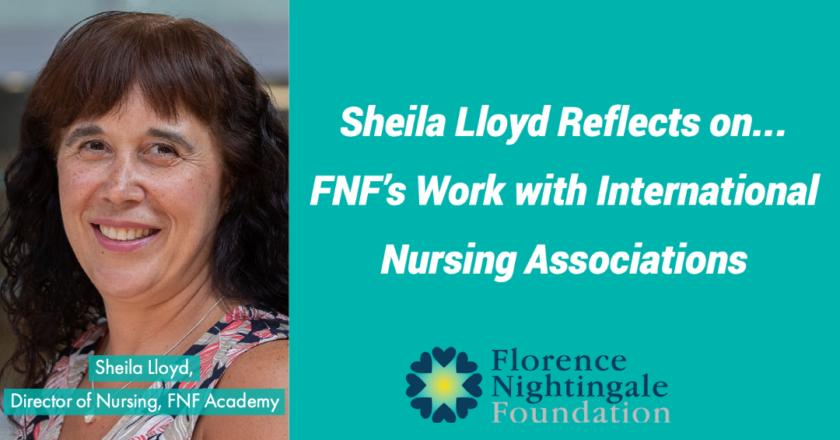
*An International Nursing Association (INA) is a group of people who have come together to actively support and connect nurses and their families who live outside their shared country of origin.
As Director of Nursing, I have the privilege of leading on the Florence Nightingale Foundation’s (FNF) small grants programme for International Nursing Associations (INAs). As society becomes ever more diverse and multi-cultural, the role of our international nurses becomes more important as we tackle health inequalities within our ethnic minority communities. International nurses have supported our great NHS since its inception and will continue to do so well into the future.
The Florence Nightingale Foundation is proud to have a national reputation for delivering bespoke leadership scholarships and programmes to nurses and midwives. The Foundation has the tools and expertise to assist INAs and we are passionate about supporting nurses from across the globe in developing their leadership skills. It was this passion that brought life to the small grants programme. The project was established in partnership with NHS England/Improvement (NHSE/I) sponsored by Ruth May Chief Nursing Officer for England as one of Ruth’s priorities. These grants allow INAs to provide culturally sensitive pastoral care to members in their association, helping with health and wellbeing, and supporting international nurses and midwives in practice who are living and working within the NHS in England.
When I read the applications from the INAs for the grants, I felt an immediate sense of commitment and compassion from the applicants to help their members settle into life in England and the NHS. Providing support for knowledge that we often take for granted. Where to shop for food, locations to live, and making sure nurses could meet up with people from their shared country of origin.
I had the privilege of interviewing the applicants and was blown away by the compassion, innovation and motivation they displayed in wanting to ensure nurses and midwives settle into life in England safely and to prosper in their careers within the NHS. I can say that my day spent interviewing was one of the best days. I felt on top of the world at how privileged I was to sit on the interview panel and have such inspiring conversations about how together we can support the recruitment, retention and career progression of our international staff.
Once grants were awarded, we planned a quality improvement/development day for the successful INAs grant owners. We welcomed the teams and showed what support was on offer from FNF and NHSE/I to accompany the INAs on their journey over the next six months. It was the first time all INAs had come together to work jointly in planning the delivery of their improvement projects. We received wonderful feedback about how great it was to spend time with other INAs, realising they share similar issues and by working together they can make improvements for all international nurses in the future.
I am ecstatic to see how the INAs develop their improvement projects over the next six months. Examples of project initiatives include building digital platforms for newly arrived nurses, workshops for career progression, development of mental health and well-being workshops. I am looking forward to seeing not only the development of the projects, but also the growth of leadership skills within the INAs that we are so lucky to work with on this programme.